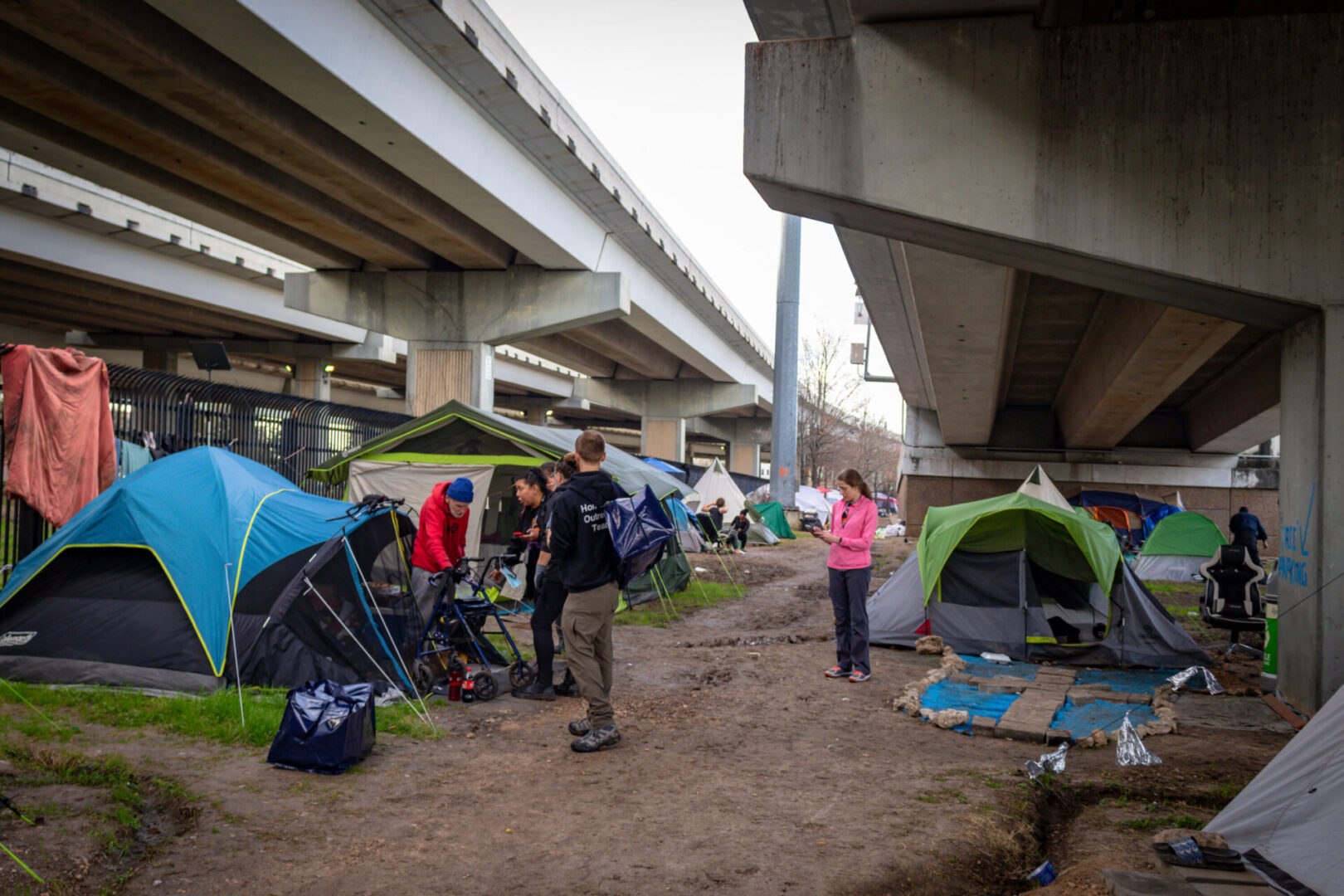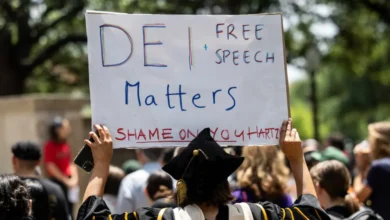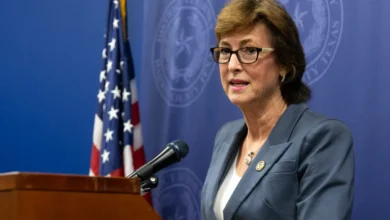Mayor John Whitmire announced a new initiative Thursday to address homelessness in Houston, emphasizing a goal to “end homelessness” in the city.
“It’s not rocket science,” Whitmire said. “Somebody said it’s like a moonshot. It’s not a moonshot. It’s us coming together.”
The mayor’s plan focuses on reducing the number of people sleeping on the streets and reclaiming public spaces. Key proposals include making it illegal to sleep in public spaces at night, increasing coordination among city departments, and establishing sustainable city funding for homelessness services.
Whitmire cited a recent U.S. Supreme Court ruling that allows cities to penalize individuals for sleeping in public spaces. He called the decision a “tool” the city could use to require people to leave the streets.
Additionally, Whitmire proposed expanding the city’s current “civility ordinance,” which prohibits sitting or lying on sidewalks in 12 designated areas during certain hours. He wants the ordinance applied citywide and extended to include nighttime hours, a move that would require Houston City Council approval.
A Broader Strategy
Housing and Community Development Director Mike Nichols outlined a comprehensive model to support Whitmire’s initiative. His five-point plan includes:
- Increasing access to shelters and housing for unhoused individuals.
- Enhancing public safety and the use of public spaces.
- Strengthening partnerships with Harris County on mental health and law enforcement.
- Creating sustainable funding for homelessness programs.
- Ensuring accountability for funding recipients, including city departments and nonprofits.
Nichols noted that the most significant reductions in Houston’s homeless population occurred during periods of increased federal funding, such as after Hurricane Harvey and during the COVID-19 pandemic. He criticized the city’s previous reliance on federal funding, describing it as a “major flaw,” and called for a more sustainable $70 million annual plan to fund outreach, rapid rehousing, permanent housing placements, diversion programs, and shelters.
To achieve this, Whitmire urged local management districts and Tax Increment Reinvestment Zones (TIRZs) to contribute funding. Kris Larson, CEO of Central Houston, highlighted the Downtown Management District’s recent $1 million contribution as an example.
“If we want to scale this program to have a citywide impact, we’ll need financial support from management districts, TIRZs, private businesses, and philanthropic organizations,” Larson said.
A History of Progress
Since 2011, Houston has reduced homelessness by 60%, according to the Coalition for the Homeless of Houston and Harris County. CEO Kelly Young attributed this success to the region’s “housing-first” approach, which prioritizes placing unhoused individuals into permanent housing before addressing other needs.
“We don’t just shelter people; we house them,” Young said. “Temporary interventions use resources that could instead support long-term housing solutions.”
Young emphasized the importance of maintaining this approach, saying, “With a fully funded plan, we can reach equilibrium—rehousing people within 30 days of falling into homelessness.”
A Shift in Tone
Despite the city’s progress, Whitmire expressed frustration with past efforts.
“I’m tired of living in the past and hearing about what Houston’s done since 2011,” Whitmire said. “I applaud previous administrations, but we still tolerate conditions like those at the city library, where the homeless use it as a washroom, and the public avoids it. It’s not fair to anyone.”
Notably absent from Whitmire’s announcement was any mention of a city-sponsored encampment, a solution he had proposed in October to address public homelessness. At the time, he declared, “The homeless in public spaces is just not gonna be acceptable.”







